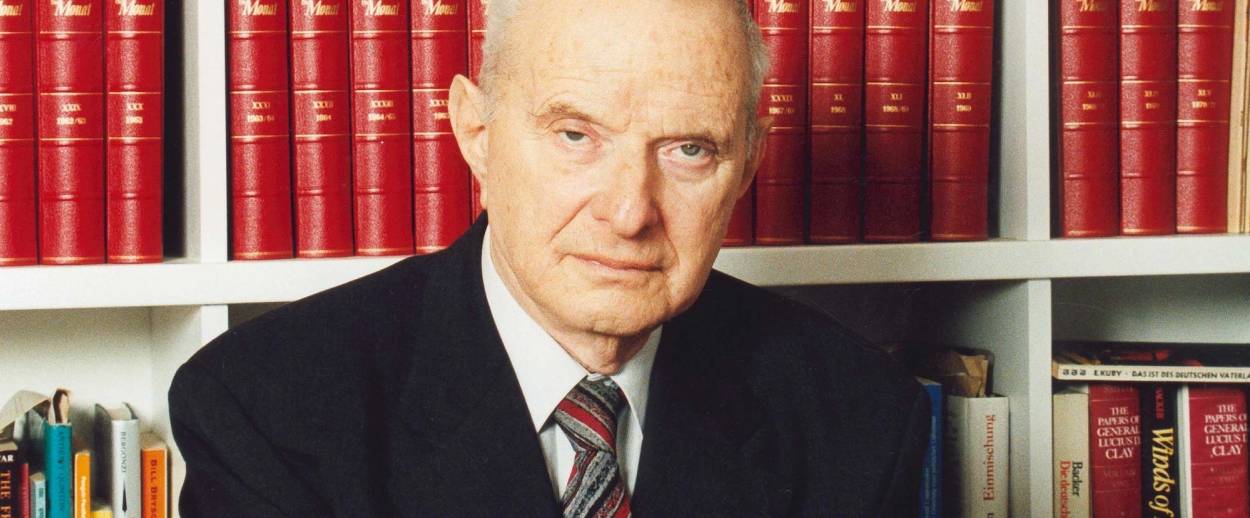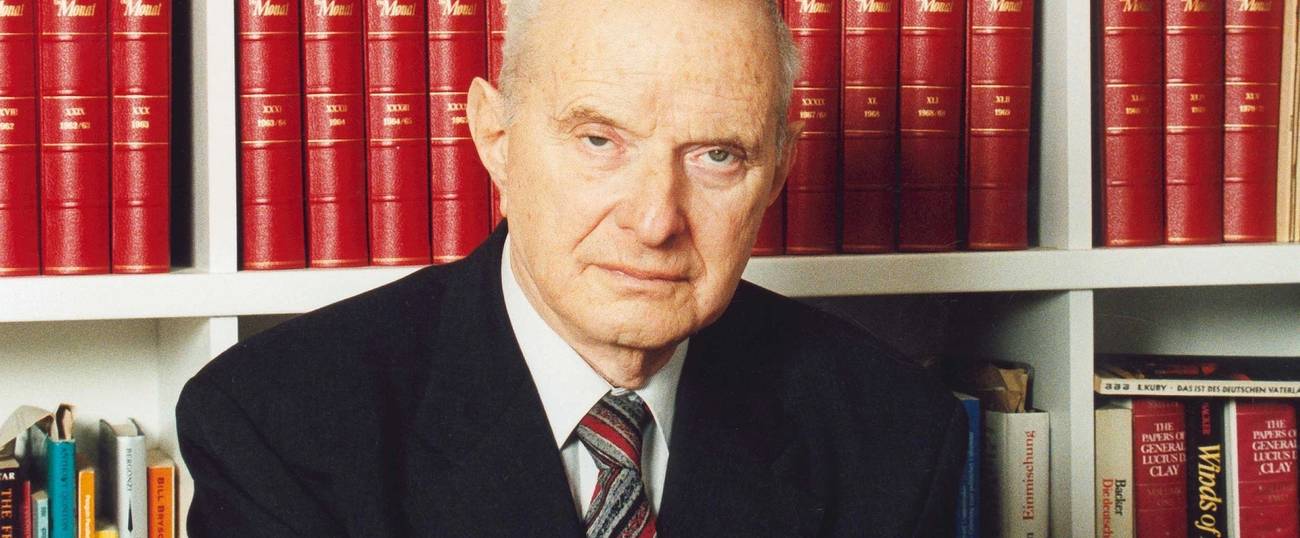Setting My Compass by Walter Laqueur, 1921-2018
Walter Laqueur wrote with the range of a journalist and the depth of a historian. He helped set my intellectual compass.




Walter Ze’ev Laqueur 1921-2018
Walter Laqueur, who died a few days ago at 97, wrote with the range of a journalist and the depth of an historian. When I learned of his passing I turned to my shelves and saw that I had 16 books written or edited by Laqueur, but I was sure there were three others hiding somewhere. A devoted follower of his work, I was certain I had read a substantial portion of his writing. But when I looked at a rough bibliography, I found that beginning in the 1950s, when Laqueur was in his 30s, he had gone on to write or edit 74 works in English and others in German.
Laqueur was born in Germany but escaped to Israel in 1939, leaving behind parents who perished in the Holocaust. While working the land, a fellow kibbutznik taught him Russian and by the mid-1960s he was writing books on the Soviets and the Middle East. His collection of writings on the Arab-Israeli conflict, later updated with Barry Rubin, became a standard compilation. As for Russia, in the early 1990s while many in the press, and deluded academics like Jeffrey Sachs of Columbia, saw a democratic and capitalist future rising in the post-Soviet state, Laqueur demurred. He noted that Russia had neither a democratic nor a capitalist tradition to build on. Rather, as he wrote in his 1993 book The Black Hundreds, an account of the thuggish, fervently Czarist, anti-Semitic proponents of autocracy, Russia had an ugly right-wing tradition to draw on.
Laqueur’s prescience on Russia followed decades of dissent from conventional wisdom. In the 1970s when I was in my mid to late 20s, I found myself drawn not only to Laqueur but to two of his friends, George Lichtheim and George Mosse, as well. Mosse had become a beloved professor at the University of Wisconsin where he directed the dissertation of my friend Anson Rabinbach and inspired the career of Rabbi Andy Bachman, who presided over the marriage of my sons.
All three shared a similar journey as Jews born in Germany who fled the Nazis. All were preternaturally learned. Lichtheim and Laqueur mocked the ill-informed efforts of Hannah Arendt to cover for her affair with German romanticism in Eichmann in Jerusalem. Mosse and Laqueur created the Journal of Contemporary History. I never met Lichtheim but thanks to Anson Rabinach I had the good fortune to share a lunch with Mosse and thanks to my friend Freddy Ciporen, then of Publishers Weekly, I was able to spend time with Laqueur. These three men I used to help set my intellectual compass are all gone now.
But I have their writing to hold on to. Laqueur’s History of Zionism is a vast and indispensable resource. His books on terrorism gave the TV pundits something to think about. His account of IMRO, the Internal Macedonian Revolutionary Organization, and the origins of modern terrorism came as a revelation to ABC news anchor Peter Jennings.
One example of Laqueur penetrating to the deep sources of contemporary history was his marvelous 1979 article in Commentary on the Iranian revolution that overthrew the shah. The shah, he noted, was not nearly as bloody or repressive as his neighbor Saddam Hussein who received but a fraction of the criticism. And amidst all the palaver from other less astute commentators on the Khomeinist revolution, this line from Laqueur has stuck with me: “Khomeini saw that the agrarian reform” the shah was pushing, “would further weaken the position of the clergy in the villages,” since they “were among the largest landowners in the country.”
As with the Iranian revolution, Laqueur saw further and deeper than his contemporaries. When the events in Egypt’s Tahrir Square produced paroxysms of optimism about an “Arab Spring” Laqueur explained in his evenhanded manner and unadorned prose that there was no happy outcome possible in a land whose limited liberal traditions had been erased by the Nasserite revolution once hailed by European leftists.
Laqueur had long been aware of Europe’s hollow pretensions. In 1979 he wrote A Continent Astray, Europe 1970-1978. In the 2000s, Western Europeans hailed the European Union as the foretaste of a new era in human history. But Laqueur, who had written earlier about the self-Finlandization of Europe in the face of the 1980s Soviet military buildup—they were, as always, rescued by the Americans—saw something different. In measured tones he described what he saw: a Europe hollowed out morally and demographically; a Europe unequal to the challenge of mass migration.
I haven’t mentioned Laqueur’s books on Weimar and on Fascism since I’ve only dipped into them. As for his writings on why the allies responded so slowly to the Holocaust … that was simply too grim for me to read. But there is a great deal I still want to read and even re-read, such as his memoir Thursday’s Child Has Far to Go. For now, I’m left with a sense that I’ve been intellectually orphaned, left on my own to make sense of the world.
Fred Siegel is on the Editorial Board of the Manhattan Institute’s City Journal and serves as the Scholar in Residence at St Francis College in Brooklyn, NY. He is the author of several books, most recently The Revolt Against the Masses: How Liberalism Has Undermined the Middle Class.